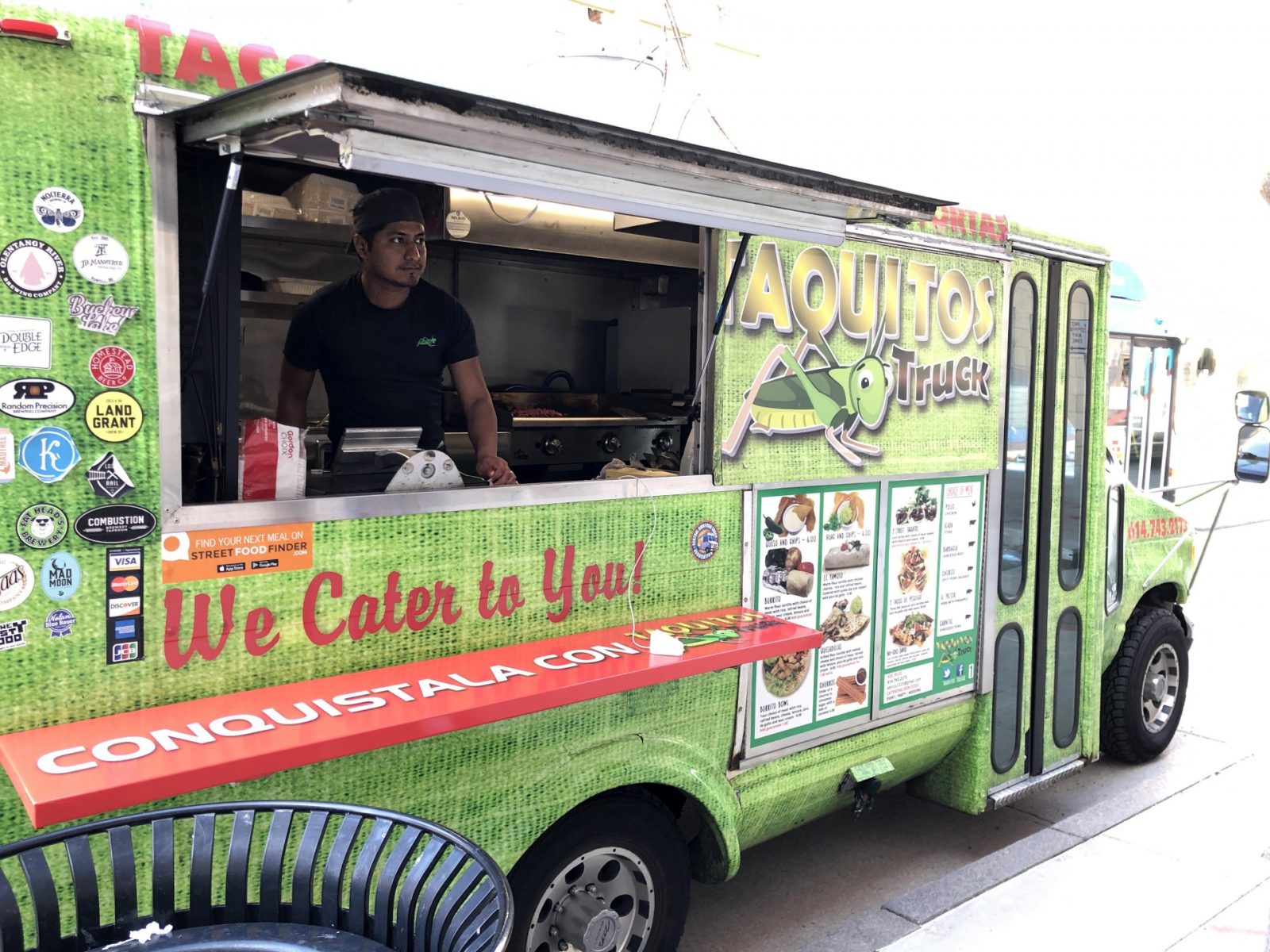Food Fight: With festivals postponed, food trucks are coming to a neighborhood near you

Columbus has a certain love affair with food trucks. We must, since there are over 200 of them in the metro area. Ranging from international flavors to local staples, these mobile kitchens bring slices of diverse cuisine to our parks, favorite bars and sidewalks.
It’s a challenging business in good times, with most trucks having just a few hours each day to log a success. Of course this is Ohio, so weather brings its own challenges to the table. While the entire restaurant industry has been hit hard by closures to limit the spread of the coronavirus, food trucks are now facing an economic snowstorm.
“It’s devastating. Some are making 10 percent of what they did. The spots they have on a daily basis, 90 percent cancelled,” said Nik Gandhy, founder of Streetfoodfinder.com, a website that helps the public locate their favorite food trucks.
On top of their daily walk-up business, a significant portion of business is catering parties and events. Those too, have been virtually
all cancelled.
“Here at Pitabilities, we are working hard to keep our staff employed as much as possible. Our sales have dropped nearly 90 percent, with some new opportunities coming up that may help us save a few jobs. As of today, we are making some really hard decisions as to who and how many of our staff to lay off. This has been the most difficult decision of my entire life, I have never laid off anyone in over 35 years of having employees,” Jim Pashovich, founder of Pitabilities trucks, said.
BROUGHT TO YOU BY
Despite these hardships, there is a certain resilience and scrappiness that makes up the food truck community. Leading the charge is the Central Ohio Food Truck Association (COFTA).
Last week, COFTA introduced its Neighborhood Pickup program. This program is offering the opportunity for local food trucks to continue to serve their community, while practicing appropriate social
distancing measures.
In the coming weeks, food trucks are scheduled to serve at designated locations around Greater Columbus. These locations have been selected with ample parking and immediate access to residential neighborhoods. Residents can view live, updated truck schedules online and place their order in advance. A designated pickup time will be provided, eliminating the need to wait in line to order. Payment can also be made online, so cash and cards do not need to be exchanged at the order window.
“We have transitioned from serving our guests at their place of employment and now going to the neighborhoods where they live. Our lunch service is nearly nonexistent and we hope that we can build a dinner service in the neighborhoods,” Pashovish said.
Gandhy added there are also efforts to use Nextdoor.com to identify neighborhoods that would like to see a food truck stop by.
“It’s hard, but we’re trying to get better finding new spots. We’re actually trying to go to apartment complexes instead of the streets, so we can get some business,” Abimael Ruiz, owner of two Taquitos food
trucks, said.
Food safety has always been a high priority for the food truck industry, and with the new social distancing measures in place, they are working on methods to serve carry-out while keeping customers safe.
“A lot of the trucks have signs out that say “please respect social distancing.” So customers can still walk up to order. But other trucks are requiring all orders be placed online,” Gandhy said.
Gandhy has been working day and night to get as many food trucks as possible set up with online ordering so they can better compete in the new reality. Customers can find a truck, place an order, and pay on the site, and walk-up to the truck when it’s ready for pick-up.
Despite the massive challenges facing these small business owners, many of whom toil in their trucks day-in, day-out, the guy who builds many of the trucks thinks the industry will survive, and perhaps even grow as a result of this economic storm.
Michael Gallichio is the owner of Titan Trucks—a Central Ohio custom food truck builder and founder of the annual Food Truck Fest.
Gallichio says the latest food truck boom was created in the wake of the last economic collapse when everyone lost their jobs. “People figured, hey I don’t have a job, and for a relatively small investment I can be in business for myself.”
Starting a truck can be done for as little as $75,000, according to Gallichio. For now though, those dreaming of a new mobile business will need to wait, as the current food truck operators figure out ways to navigate a world with far less demand and virtually no access to crowds.
“Some of the food trucks are shutting down and hoping to ride it out. But these guys are innovators. They’re gonna find a way. That’s what’s so cool about this industry. They’re constantly evolving,” Gallichio said.
As for the Food Truck Festival, it’s still scheduled for early August, but like many things these days, that’s subject to change as the state and nation combat the coronavirus threat. Until then, we can all daydream of being next in line, wearing our flip-flops, hot sun on our back, cold beer in our hand, waiting to experience something special.
Find food trucks headed to your neighborhood on streetfoodfinder.com
BROUGHT TO YOU BY



